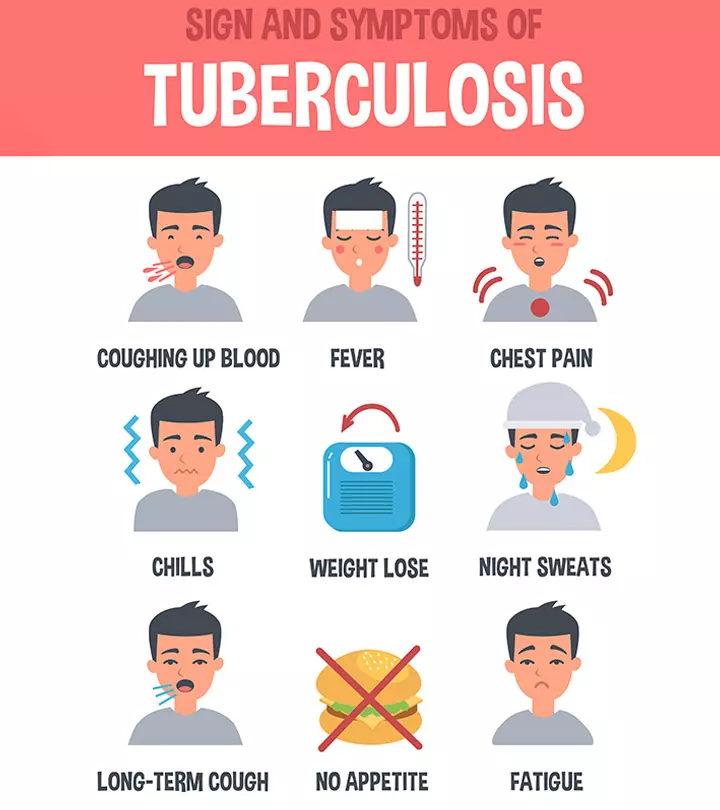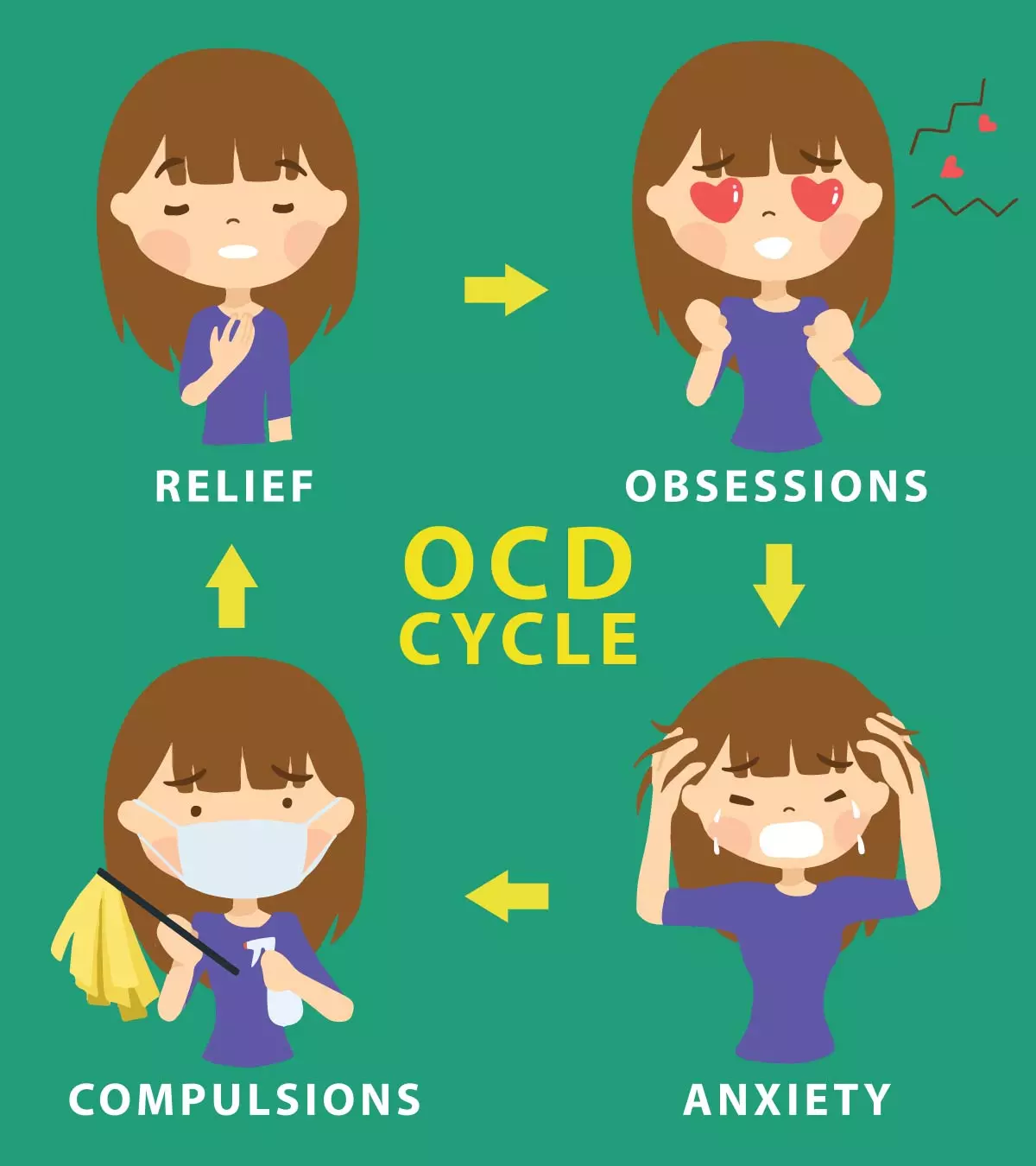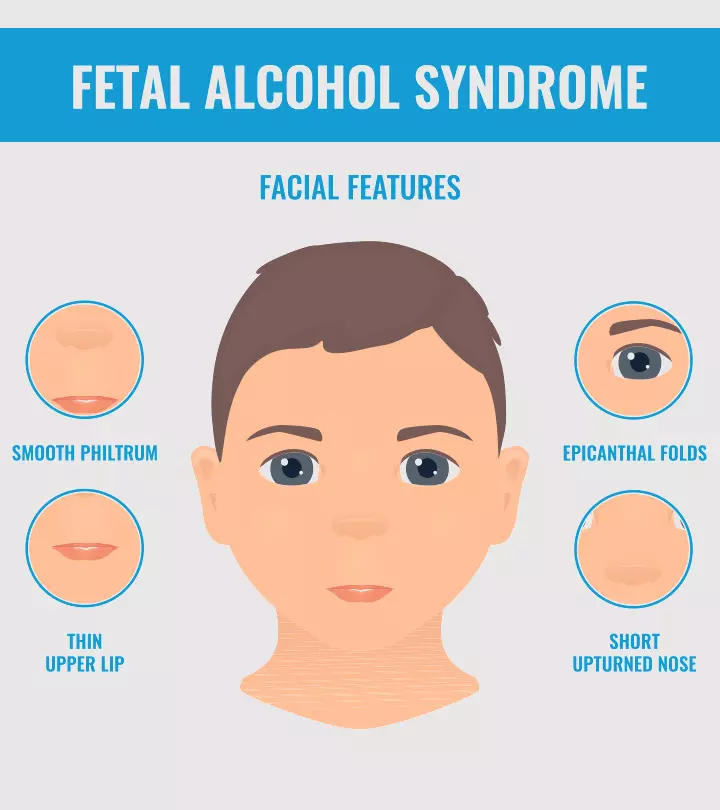
Intellectual disability in children, previously known as mental retardation, is a neurodevelopmental disorder that occurs due to problems in the brain’s growth and development. The condition causes significantly low intellectual functioning in children and affects their adaptive skills (those required to carry out daily tasks). Children with an intelligence quotient (IQ) below 70 are considered to have an intellectual disability. This condition may exist from birth or develop during early infancy (1).
Although intellectual disability affects the brain, it is not considered a mental health disorder because the condition can be improved with proper parental care. Good medical care and early special education (at schools for children with special needs) also help children develop better adaptive skills.
This post talks about the types, causes, symptoms, diagnosis, treatment, and prevention of intellectual disability in children. Read on as we also provide tips for parents and teachers on effectively managing the condition.
Key Pointers
- Intellectual disability in children affects their intellectual functioning and adaptive skills.
- Symptoms of behavioral intellectual disability may include slow responses, difficulty with social interaction, aggressive reactions, and memory problems.
- Causes of intellectual disability in children include genetic factors, maternal complications during pregnancy, birth-related factors, infections, and head injury.
- Diagnosing intellectual disability in children involves prenatal and developmental screening, imaging tests, genetic testing, and laboratory tests.
- Management of intellectual disability in children involves providing good medical care, early special education, and support for developing adaptive skills.
How Common Are Intellectual Disabilities?
About 1-3% of the world population or nearly 200 million people have intellectual disability. The US alone has 6.5 million people with intellectual disabilities (2).
It is more common in low-income countries affecting 16.41 in every 1000 people. According to the United Nations Development Program’s estimation, 80% of people with disabilities belong to low-income countries (2).
The National Center for Health Statistics reports that developmental conditions, including intellectual disabilities and other delays, are more common in boys than girls. Between 2014 and 2016, the percentage of children aged 3-17 diagnosed with developmental disabilities increased from 5.76% to 6.99%, as illustrated in the graph below.

Prevalence of different disability types in US, by Age (2019)
Source: The prevalence of children diagnosed with any developmental disability (2014-2016)Symptoms Of Intellectual Disability In Children
In most children, symptoms and signs of intellectual disability may not be noticeable until preschool age. Some children may have an early onset of symptoms. Developmental delay in children is often noticed early in cases of severe disabilities. Nevertheless, formal testing is the only way to make the exact diagnosis.
The following symptoms and signs are often associated with intellectual disability in children (3).
- Unusual facial features
- Macrocephaly (too large head)
- Microcephaly (too small head)
- Hands and feet malformations
Some children may not have any physical features but may show signs and symptoms of serious problems (3).
- Seizures
- Failure to thrive
- Drooling
- Protruded tongue
- Lethargy

- Developmental delay
- Vomiting
The following behavioral signs and symptoms are often seen in children with intellectual disability (4).
- Slow responses
- Inability to make decisions
- Aggressive reactions when demands are denied or fulfilled with delay
- Memory problems
- Difficulty solving problems
- Poor or lack of attention
- Difficulty in social interaction
Children with severe intellectual disabilities may have difficulties learning early motor skills such as rolling, sitting up, or standing in the first year of life
. Language development delay is the most common issue faced by children with intellectual disabilities, and it is often discovered in the preschool age.
Children may not be able to speak complete sentences due to language and cognitive difficulties. Temper tantrums, aggressive or self-harming behaviors, explosive outbursts, etc., are more common in children with ID than in a normal child. These behavioral problems can often be due to frustrations from impaired communication skills or motor skills.
Causes Of Intellectual Disability In Children
Various medical, environmental, and genetic factors during pregnancy, birth, or after birth may cause intellectual disability in children
. These factors may result in damage or often interfere with the development of the brain. Specific causes of intellectual disability are not always identified.
The following genetic factors, such as inherited disorders and chromosomal abnormalities, may increase the risk of intellectual disability (3).
- Down syndrome
- Fragile X syndromeiA genetic disorder caused by a mutation in the FMR1 gene, resulting in learning and intellectual disabilities.
- PhenylketonuriaiA rare inherited disorder caused by an excess of phenylalanine in the body, leading to severe brain abnormalities. (PKU)
- Tay-Sachs diseaseiA severe inherited neurological disorder marked by progressive degeneration of the nerve cells.
- NeurofibromatosisiA rare genetic disorder where tumors (often benign) develop on the nerves causing chronic pain, weak bones, and learning disabilities.
- Congenital hypothyroidismiA birth condition characterized by a failure of thyroid glands to produce sufficient thyroid hormones.
The following maternal complications or situations during pregnancy may increase the risk of ID in children (4).
- Undernutrition
- Alcohol use

- Exposure to toxins, such as methylmercury and lead
- PreeclampsiaiA pregnancy-related disorder characterized by high blood pressure, water retention, and protein content in urine.
- Multiple births such as having twins or triplets
- Exposure to certain drugs, such as chemotherapy drugs, valproate, phenytoin, etc.
- Infections with Zika virus, rubella, cytomegalovirusiA virus present in an inactive state in humans, capable of causing contagious infections in people with weak immunity. , toxoplasma gondiiiA protozoan parasite and the causative agent of toxoplasmosis (an infection causing flu-like symptoms). , herpes simplex virus, or HIV
The following factors may increase the risk of ID during birth (4).
- Fetal hypoxia or insufficient oxygen for long periods during the birth
- Extreme premature birth
The following factors may cause ID after birth (4).
- MeningitisiInflammation of the protective layers and fluid surrounding the brain and spinal cord.
- EncephalitisiA severe inflammatory brain condition resulting from an infection or autoimmune response.
- Severe head injury
- Near drowning (drowning accident)
- Undernutrition
- Emotional abuse or neglect
- Lead or mercury poisoning
- Brain tumors
- Chemotherapies
 Did you know?
Did you know?Types Of Intellectual Disability
Intellectual disabilities in children can be broadly classified into four types based on severity (5).
- Mild: The majority, around 85%, fall into the mild category with an IQ range of around 50–69; they can live independently with minimal support.
- Moderate: About 10% of individuals are classified as having a moderate intellectual disability, characterized by an IQ range of 36–49, where independent living is possible with medium support.
- Severe: Those with severe intellectual disabilities make up 3.5%, with an IQ range of 20–35, requiring daily assistance and extensive support for routine activities.
- Profound: The remaining (about 1.5%) population falls into the profound category with an IQ below 20, necessitating 24-hour care and pervasive support for all aspects of daily life.
Diagnosis Of Intellectual Disability In Children
There are various tests to assess intellectual disability and also to predict the risk of developing it. These include (3):
- Prenatal screening, such as amniocentesisiA prenatal test used to evaluate genetic and health abnormalities in the fetus using cells from the amniotic fluid. or Down syndromeiA prenatal test used to evaluate genetic abnormalities in the fetus using cells from the placenta. =”Chromosomal disorder (trisomy 21) characterized by reduced muscle tone, delayed physical and intellectual development.” ].
- Growth and developmental screening could help assess developmental disabilities and delays during infancy.
- Imaging tests such as MRI may help to identify brain abnormalities.
- An electroencephalogram is done to assess the electrical activity of the brain if seizuresiSudden and abnormal surges of electrical activity in the brain characterized by jerking body movements and loss of consciousness. are present.
- Genetic testing can be useful to identify inherited disorders.
- Laboratory tests such as blood tests and urine tests are done to identify infections and toxins or confirm specific inherited disorders.
- The hearing evaluation is often done to exclude the diagnosis of hearing impairment in children with language difficulties.
- Formal intellectual and skills testing is done to assess the mental functioning of the child. These tests include a parental interview, observations, and comparison of scores with the same age children. A score below 70-75 is required to diagnose ID. Stanford-Binet intelligence test and Wechsler intelligence scale for children aim to measure intellectual functioning. In contrast, tests such as Vineland adaptive behavior scales are done to assess communication, social abilities, and motor skills.
Doctors consider multiple factors before diagnosing intellectual disability, and tests are often ordered based on the possible causes. It is crucial to diagnose the problem and identify the cause to plan an early intervention to improve a child’s functioning level.
 Point to consider
Point to considerAdaptive Skills And Support
The degree of impairment can be different in each child, varying from mild to severe disabilities. It is measured by the scores of standardized intelligence tests. But the impact of the impairment is assessed based on the support a person requires to perform adaptive skills. That means a child with mild intellectual disability may have poor adaptive skills, thus requiring extensive support.
According to scores of IQ tests, about 3% of the population scores less than 70, which means they meet the criteria for the diagnosis of intellectual disability. However, only 1% of the population has a severe intellectual impairment that requires support.
Adaptive skills are everyday skills to meet the demands of one’s environment. These may include (6):
- Self-care skills, such as bathing, feeding, dressing, etc.
- Communication skills using verbal and non-verbal languages.
- Social skills, such as interpersonal relationships, obeying rules and regulations.
- Self-direction skills, such as problem-solving, planning activities.
- Functional academics, such as reading, writing.

- Leisure skills include taking responsibility for activities and participating in the community.
- Ability to adapt to home or school environment and ability to work independently to meet work standards.
- Ability to use transport, perform shopping, etc.
- Health and safety awareness such as a measure to protect oneself from danger and respond to health issues.
The support required for the intellectually disabled is categorized as (7):
- Intermittent: Requires occasional support
- Limited: May require support for some activities
- Extensive: Ongoing daily support is required
- Pervasive: Need support for all activities, often require nursing care
Children may lack skills and may require constant support or assistance. However, a few children may gradually learn skills with proper training and manage their day-to-day life.
Treatment For Intellectual Disability In Children
Management aims to improve the child’s intellectual functioning levels and train them in adaptive skills. Multidisciplinary support is required to care for a child with intellectual disability. It may require the support of the following specialists (3).
- Primary care doctor or pediatrician
- Social worker
- Speech pathologists or therapist
- Physical therapist
- Occupational therapist
- Neurologist
- Psychologist
- Nutritionist
- Behavior consultant/therapist

The involvement of the family is an essential factor in individualized programs for the child. Home is the best living place for children with intellectual disabilities. However, children with complex disabilities and behavioral problems, such as harming others or self or those with severe physical disabilities, may be moved to specialized centers based on parents’ willingness and care teams’ opinions.
How To Help A Child With Intellectual Disabilities?
Encouragement and support from parents and teachers are essential to improve the child’s intellectual functioning. Although living with an intellectual disability disorder can be challenging, learning skills and adapting to them over time is possible.
Tips for parents
When parents discover that their child has intellectual disabilities, it can be pretty challenging and confusing, possibly leaving them in a state of dismay and uncertainty. Dani Mini, who has a son (Diego) with autism and intellectual disabilities, acknowledges that she was initially in denial about his condition. She says, “I just could not accept mental retardation, which was the term used throughout Diego’s childhood. Denial conveniently kicked in clouded my reasoning and gave me some measure of resilience. I could explain away Diego’s low IQ scores a hundred different ways. Diego was tired when he was tested. He lived in a dual-language environment. He was a terrible test taker. IQ scores could change as children developed, couldn’t they? However, my most reassuring and logical reason was always that Diego’s “autistic” behaviors got in the way and necessarily rendered the scores unreliable.
“One good thing about parental denial is that it decreases gradually. In most cases, we don’t just wake up one day and suddenly realize our delusion. Denial gives us the necessary time to adjust (i).” However, it is crucial for parents to recognize and come to terms with their child’s condition and educate themselves on the essential measures to provide the best possible support for their child.
The following measures may help parents understand and support the child (8).
- Learn about intellectual disability
- Be patient while the child learns and grows
- Encourage the child to be independent, despite it being difficult or time-taking for them to learn adaptive skills such as feeding, grooming, dressing, or using bathrooms
- You may involve them in age-appropriate household chores and errands
- Give positive feedback when the child does things well or tries their best
- Find opportunities for them to interact and socialize with others
- Get support from support groups
- Be in touch with the child’s teachers
- Encourage the child to learn what they love, such as painting, dancing, singing, etc.
Tips for teachers
Education must be least restrictive and in the most inclusive setting, such as with occasions to interact with non-disabled peers (9).
The following tips can help teachers bring out the best in intellectually disabled students (9).
- Learn about the condition
- Recognize the enormous difference that a teacher can make to the life of a student with intellectual disabilities
- Teach new tasks in smaller segments
- Teach using visuals or videos; these can be referred back to when things are forgotten
- Try to explain with demonstrations than verbal directions
- Always give immediate feedback
- Teach daily living and social skills, such as how to greet someone, how to count money, occupational exposures, and opportunities, etc.
- Keep in touch with parents
 Point to consider
Point to considerPrevention Of Intellectual Disability In Children
The following measures may help to prevent the risk of developing intellectual challenges and disabilities in childrenf (1).
- Proper prenatal care may lower the risk of IDs, such as taking folateiNaturally occurring form of Vitamin B9, responsible for protein metabolism and the production of red blood cells. vitamin supplements, reduces the risk of neural tube defectsiCongenital abnormalities in the brain, spine, or spinal cord that usually happen during the early weeks of pregnancy. and premature birth
- Maintain adequate nutrition intakes during pregnancy
- Prenatal screening
- Avoid alcohol use during pregnancy
- Get vaccinations against rubella

- Seek prescription to use drugs before conception and pregnancy since some medication may affect fetal growth and development
- Proper neonatal care and nutrition may reduce after-birth risk factors for ID
- Always seek medical attention for symptoms of toxicity or infections in neonate before it complicates
Frequently Asked Questions
1. What are the four levels of intellectual disability?
The four levels or intensities of intellectual disabilities based on the IQ scores are identified as mild, moderate, severe, and profound (10).
2. Is ADHD an intellectual disability?
As per experts, ADHD is not an intellectual disability. However, some children with ADHD may develop a specific learning disability or intellectual difficulties (11).
3. How can inclusive education benefit children with intellectual disability?
Inclusive education can provide equal educational opportunities to children with disabilities and equip them with the skills and knowledge they need to contribute to their community. In addition, inclusive education systems provide them with the opportunity to build behavioral, social, academic, and vocational skills through the formation of new and better relationships with parents, teachers, and peers (12) (13).
4. How can physical activity and recreational programs benefit children with intellectual disability?
Studies indicate that participation in physical activities, aerobic exercises, and recreational programs can help enhance physical and mental health, cognitive functioning, social skills, creativity, and community orientation in children with intellectual disabilities (14) (15).
5. Can children with intellectual disability lead independent lives?
Children with intellectual disabilities can lead independent lives with the right support, tailored education, and skill development. Early intervention, therapy, and vocational training play crucial roles in building their abilities and confidence. Encouragement from families and communities helps them develop social, emotional, and practical skills for daily living. While the level of independence varies based on the individual and the severity of the disability, many can achieve self-reliance in areas like employment, personal care, and relationships with proper guidance and opportunities.
6. What resources are available for parents of children with intellectual disability?
Parents of children with intellectual disabilities can access various resources to support their child’s development and well-being. Community organizations and support groups connect families with others facing similar challenges and provide emotional help. Online resources offer education and guidance. Additionally, healthcare providers and counselors can assist with medical, behavioral, and emotional needs.
Intellectual disability in children causes specific difficulties in learning skills and motor skills development. This condition might occur due to certain chromosomal or genetic abnormalities. Some other reasons include complications during pregnancy, preeclampsia, alcohol abuse, or lack of proper maternal nutrition. You should get proper treatment facilities for your child and take them to speech therapists, psychologists, or behavior therapists to help them overcome this situation and improve their quality of life. It is vital that you encourage your child to participate in activities and improve their self-confidence levels.
Infographic: Parenting Tips For A Child With Intellectual Disability
Handling a child with an intellectual disability can be a little challenging for parents as they have slow responses, difficulty understanding, and poor attention span. However, preparing yourself and some other tips can be helpful. The infographic below includes useful tips to help and support parents with an intellectually disabled child.

Illustration: Momjunction Design Team
Illustration: Intellectual Disability (ID) In Children: Symptoms & Treatment
_in_children_symptoms__treatment_illustration.jpg.webp)
Image: Stable Diffusion/MomJunction Design Team
Discover the latest scientific research on intellectual disability, from diagnosis to treatment. Learn how to help those affected by this condition by viewing this informative video.
Personal Experience: Source
MomJunction articles include first-hand experiences to provide you with better insights through real-life narratives. Here are the sources of personal accounts referenced in this article.
i. The power of denial.https://medium.com/special-needs-nation/the-power-of-denial-ab78a4e9fb5
References
- Intellectual disability; MedlinePlus; The United States National Library of Medicine
https://medlineplus.gov/ency/article/001523.htm - What is Intellectual Disability?; Special Olympics
https://www.specialolympics.org/about/intellectual-disabilities/what-is-intellectual-disability#:~:text=Approximately%206.5%20million%20people%20in16.41%20in%20every%201%2C000%20people. - Intellectual Disability; MSD Manuals
https://www.msdmanuals.com/home/children-s-health-issues/learning-and-developmental-disorders/intellectual-disability?ruleredirectid=743 - Intellectual Disability; Winchester Hospital; Beth Israel Lahey Health
https://winchesterhospital.org/health-library/article?id=96644 - Clinical Characteristics of Intellectual Disabilities; NCBI
https://www.ncbi.nlm.nih.gov/books/NBK332877/#:~:text=DSM%2D5%20defines%20intellectual%20disabilities,1. - Adaptive Skills; PASEN
https://pasen.org/adaptive-skills/ - INTRODUCTION TO INTELLECTUAL AND DEVELOPMENTAL DISABILITIES; Network of Care Imperial County California
https://mentalhealth.networkofcare.org/imperial/HealthLibrary/Article?docType=noc&articleId=891 - What is Intellectual Disability?; The American Psychiatric Association
https://www.psychiatry.org/patients-families/intellectual-disability/what-is-intellectual-disability - Intellectual Disability; Center for Parent Information and Resources
https://www.parentcenterhub.org/intellectual/ - Intellectual Disability; NCBI
https://www.ncbi.nlm.nih.gov/books/NBK547654/ - ADHD; Learning Disabilities Association of America
https://ldaamerica.org/disabilities/adhd/
- Benefits Of Inclusive Ed; Kids Together
https://kidstogether.org/benefits-of-inclusive-ed/ - Inclusive Education; Unicef
https://www.unicef.org/eca/sites/unicef.org.eca/files/IE_summary_accessible_220917_brief.pdf - Nancy A. Murphy et al; (2008); Promoting the Participation of Children With Disabilities in Sports Recreation and Physical Activities; American Academy of Pediatrics
https://publications.aap.org/pediatrics/article/121/5/1057/73486/Promoting-the-Participation-of-Children-With?autologincheck=redirected - Chenchen Xu et al; (2020); Improving Physical Fitness of Children with Intellectual and Developmental Disabilities through an Adapted Rhythmic Gymnastics Program in China; NCBI
https://www.ncbi.nlm.nih.gov/pmc/articles/PMC7436280/ - Causes and Prevention of Intellectual Disability.
http://www.thearc.org/wp-content/uploads/forchapters/Causes%20and%20Prevention%20of%20ID.pdf
Community Experiences
Join the conversation and become a part of our nurturing community! Share your stories, experiences, and insights to connect with fellow parents.
Read full bio of Katherine Paxton
Read full bio of Dr Bisny T. Joseph
Read full bio of Swati Patwal
Read full bio of Anindita Ghatak
















